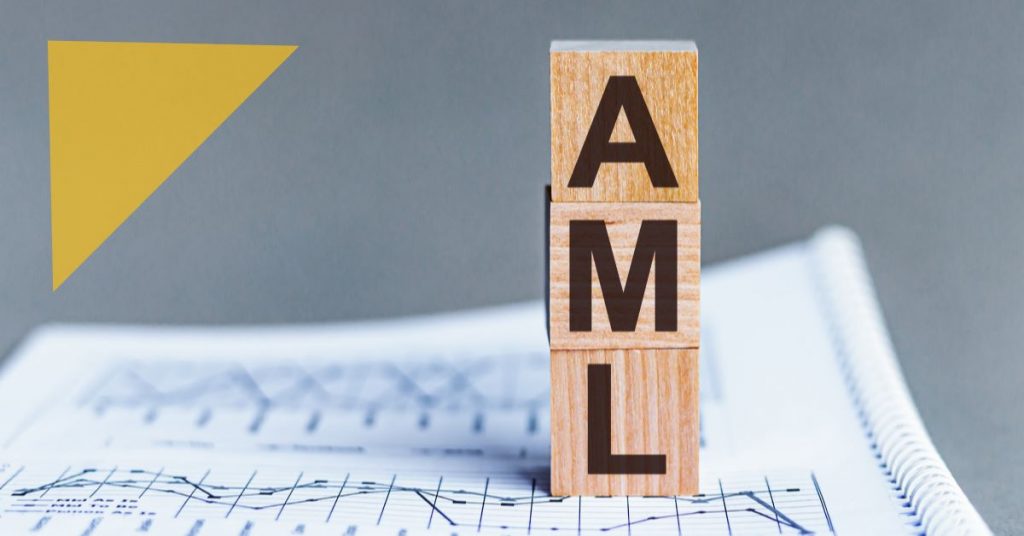The United Arab Emirates (UAE), in line with international best practices and promoting a strong regulatory environment, has been stepping up its efforts in recent years to combat money laundering and terrorist funding. Businesses must create flexible, efficient Anti-Money Laundering (AML) frameworks that are adaptable with the legislation, as shown by the UAE Central Bank and Financial Intelligence Unit’s increased regulatory attention.
Establishing a proactive approach to risk management in an increasingly complex financial ecosystem is more important than just complying with regulations while developing a future-proof AML governance structure. This article explores important components of creating a resilient AML governance structure that is adapted to the evolving regulatory environment in the United Arab Emirates.
Table of Contents
ToggleUnderstanding the Evolving AML Regulatory Landscape in the UAE
With recent updates to legislation and structures to conform to the Financial Action Task Force (FATF) standards, the United Arab Emirates has made significant progress in the fight against financial crime during the last ten years. Following the FATF’s 2020 review, the UAE was put on a “grey list,” which increased scrutiny of its CFT and AML procedures. Authorities in the UAE have responded by implementing:
- Enhanced Risk-Based Approach: Companies are expected to do thorough risk assessments.
- Enhanced Reporting Requirements: Suspicious Activity Reports (SARs) must be submitted promptly and transparently.
- Emphasis on Beneficial Ownership: Enforcing current, correct beneficial owner data.
- Increased information exchange across jurisdictions is a result of cross-border cooperation.
Businesses in the UAE may keep in line with current compliance standards and prepare for future regulatory needs by being aware of these changing regulations. This adaptability serves as the cornerstone of an AML framework that is future-proof.
Key Elements of a Future-Proof AML Governance Framework
1. Risk-Based Approach (RBA)
By using a risk-based approach, organizations may minimize regulatory exposure while identifying, evaluating, and prioritizing risks and allocating resources to high-risk areas. In light of the UAE’s dynamic market, an RBA must to take into account:
- Industry-Specific Concerns: There may be particular AML concerns associated with high-value dealers, financial institutions, and real estate.
- Geopolitical Risk Factors: Being close to high-risk areas necessitates more examination.
- Transactional Analysis: Monitoring that risk assessment changes in tandem with emerging digital payment trends and new service offers.
Businesses may keep ahead of new threats and optimize resource allocation for successful AML compliance by frequently revising risk assessments.
2. Comprehensive Customer Due Diligence (CDD) and Enhanced Due Diligence (EDD)
Effective CDD and EDD serve as essential for spotting illegal activity and reducing the danger of money laundering in a worldwide economy like the UAE. Important things to think about are:
Beneficial Ownership Transparency: Companies are required to gather accurate, comprehensive, and current data on beneficial ownership.
Continuous Monitoring: Businesses should use continuous customer monitoring, modifying their risk profiles as needed, instead of depending just on onboarding checks.
High-Risk Customer Protocols: Customers from high-risk industries or jurisdictions should undergo Enhanced Due Diligence (EDD), which calls for further inspection and monitoring.
An adaptive CDD method guarantees that businesses stay in line with regulatory requirements even when external risk factors or client profiles shift.
3. Effective Transaction Monitoring and Reporting
To find suspicious activity, transaction monitoring is key. Considering the UAE’s international ties and diverse clientele, transaction tracking needs to be:
Automated and Scalable: Making use of AI and machine learning techniques to analyze vast amounts of data, spot trends, and highlight irregularities.
Rule-Based and Adaptive: In addition to being rule-based, systems should be able to pick up new patterns and grow more intelligent over time.
Timely Reporting Protocols: Setting in place processes to effectively notify the UAE Financial Intelligence Unit (FIU) of suspected activity.
An increasingly important component of today’s regulatory environment is the ability for institutions to identify and report suspicious conduct in real time with the use of technology-driven monitoring and reporting capabilities.
4. Training and Awareness Programs
The strength of AML compliance depends on who is putting it into practice. Frequent training guarantees that staff members are prepared to recognize hazards, report problems, and comprehend their legal responsibilities in the United Arab Emirates. A program that is successful consists of:
Employees, especially those in high-risk roles, must complete mandatory AML certification programs.
Continuous Workshops and Updates: Frequent meetings to be informed about new hazards and regulatory changes.
Key Role Specialized Training: Modules specifically designed for high-risk tasks including transaction monitoring and client onboarding.
Organizations may foster a compliance culture that penetrates the company and lowers the possibility of breaches by integrating AML expertise into every area.
Leveraging Technology to Future-Proof AML Compliance
Modern AML frameworks increasingly rely on technology to enhance efficiency, detect fraud, and meet regulatory requirements. For UAE businesses, emerging technology solutions offer unique advantages:
1. AI and Machine Learning for Enhanced Detection
Institutions use machine learning (ML) and artificial intelligence (AI) to examine enormous volumes of data and find suspicious anomalies. As new information becomes available, these tools may evolve, providing:
AI is capable of identifying anomalous patterns in hundreds of transactions using advanced behavioral analysis.
- Predictive Analytics: Identifying potentially suspicious activities before they escalate.
- Decreased False Positives: These products reduce false positives by optimizing algorithms, which lowers compliance expenses and boosts operational effectiveness.
2. Blockchain for Transparent and Secure Transactions
Secure transactions and verifiable audit trails are possible because to blockchain’s transparency and immutability. Blockchain technology is useful in the UAE, because transparency is becoming ever more important:
- Facilitate KYC Compliance: Blockchain can create secure, decentralized repositories for KYC data.
- Monitor Cross-Border Transactions: Blockchain’s transparency assists in tracing the origin of funds, a significant benefit given the UAE’s international clientele.
3. Real-Time Compliance with RegTech Solutions
RegTech solutions automate regulatory monitoring and reporting procedures, making compliance management easier. Businesses in the UAE can use RegTech for:
- Real-time monitoring: Notifying authorities of any modifications to legal requirements as soon as they take place.
- Automated Reporting: Making it easier to prepare and submit reports to authorities.
- Data Management: Assisting in data analysis, storage, and retrieval, which aids in audits and regulatory reviews.
With digital solutions, businesses in the UAE can meet complex AML requirements more efficiently, ensuring resilience against regulatory changes.
Building a Culture of Compliance: Leadership’s Role in AML
A resilient culture of compliance, beginning with leadership, is essential to a long-lasting AML governance system. Businesses in the UAE are required to exhibit an organizational commitment to compliance, which consists of:
- Dedicated Compliance Officers: Employing experts in compliance and granting them the power to shape policies.
- Regular Board-Level Oversight: Reports on compliance metrics and new risks should be sent to board members on a regular basis.
- Clear and private channels of communication are essential for staff members to report any suspicious activity or compliance issues.
- UAE companies may guarantee regulatory consistency and increase stakeholder confidence, including that of investors and consumers, by cultivating a compliance-first culture.
A proactive, adaptable strategy is necessary to navigate the UAE’s changing AML environment. Businesses may protect themselves against possible risks and regulatory changes by creating a governance structure that includes risk-based assessment, thorough customer due diligence, cutting-edge technology, and a strong compliance culture.
In addition to safeguarding companies from fines, a future-proof AML framework improves their standing and gives them a competitive advantage in a world where compliance is essential. Such a structure is not only advantageous but also necessary in the UAE’s rapidly expanding financial environment.

